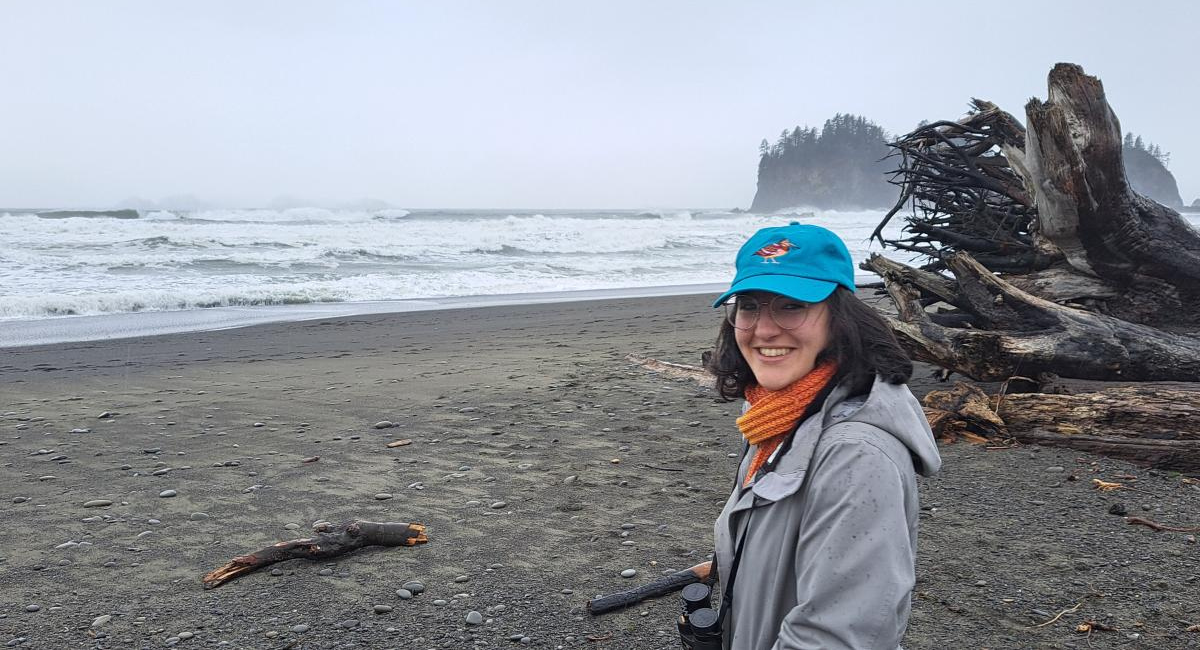
DEOHS MS student Cecilia Martindale at First Beach in La Push, Washington (Quileute Nation). Photo courtesy of Martindale.
Cecilia Martindale works with both big data and small communities in an effort to understand the many different ways climate change affects our health.
During one week, the master’s student might be using the UW’s supercomputer to explore how heat affects people’s exposure to the toxic weed killer glyphosate. The next, she could be visiting a public high school in Eastern Washington to help monitor indoor air quality and prevent wildfire smoke infiltration.
“I feel like I’ve gotten a much more well rounded experience by being able to work on these two different sides of environmental health,” said Martindale, an MS student in the UW Department of Environmental & Occupational Health Sciences (DEOHS). “It’s good to learn both the technical and interpersonal skills that are really important for building relationships with community partners.”
Martindale the 2025 recipient of the Gilbert S. Omenn Award for Academic Excellence, one of the most prestigious School-wide recognitions for master’s and doctoral students. “Cecilia’s commitment to public health is evident through her innovative research, advocacy and community engagement,” said her adviser, DEOHS Professor and Chair Lianne Sheppard.
Read the full story on the Department of Environmental and Occupational Health Sciences blog.